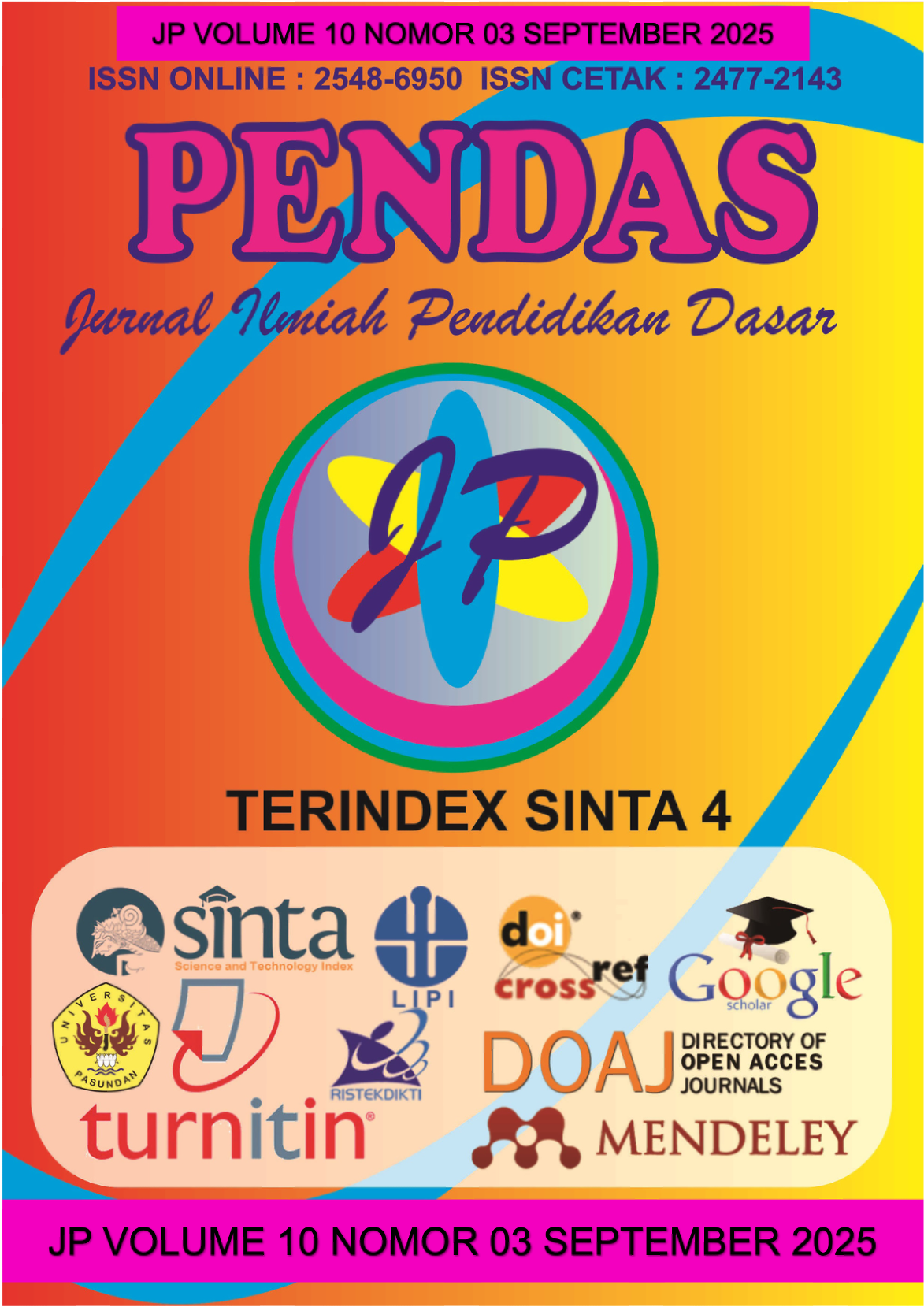PERSEPSI MAHASISWA TERHADAP AKUN INSTAGRAM @INFOUNP SEBAGAI MEDIA INFORMASI AKADEMIK
DOI:
https://doi.org/10.23969/jp.v10i03.31521Keywords:
Information, Social Media, Instagram, Student PerceptionAbstract
This study aims to describe the perceptions of students of the Department of
Information and Library Science, Padang State University, towards the Instagram
account @infounp as an academic information medium. This study uses a
quantitative approach with a descriptive method. The data collection technique
was carried out by distributing online questionnaires to 78 active students who are
followers of the @infounp account, with the sample determined using the Slovin
formula. The research instrument was compiled based on five indicators of the
Uses and Gratifications theory, namely: information needs, timeliness, clarity of
information, ease of access, and user satisfaction. The results showed that
students perceptions of the @infounp Instagram account were generally in the
very good category with an achievement score of 82.0%. From the analysis, the
findings of the average score for each indicator were as follows: information needs
(4.08), timeliness (3.97), clarity of information (4.17), ease of access (4.08), and
user satisfaction (4.08). These findings indicate that the @infounp account has
played an effective role in conveying academic information to students, although
there are still notes regarding the clarity and interactivity in delivering its content.
Downloads
References
Data Reportal. (2024). Digital 2024:
Global overview report.
Gopinda, M., & Nabila, J. (2024).
Pengaruh pemanfaatan Instagram
@infounp terhadap kepuasan
pengguna mahasiswa Departemen
Ilmu Informasi Perpustakaan
Universitas Negeri Padang. Jurnal
Teknologi Informasi dan
Komunikasi, 12(1), 35–50.
Hollebeek, L. D., Glynn, M. S., &
Brodie, R. J. (2014). Consumer
brand engagement in social media:
Conceptualization, scale
development and validation.
Journal of interactive marketing,
28(2), 149-165.
Katz, E., Blumler, J. G., & Gurevitch,
M. (1973). Uses and gratifications
research. The public opinion
quarterly, 37(4), 509-523.
Kemp, S. (2025). Global social media
trends January 2025.
DataReportal.
Jaya, I. M. L. M. (2020). Metode
penelitian kuantitatif dan kualitatif:
Teori, penerapan, dan riset nyata.
Anak Hebat Indonesia.
Metzger, M. J., Flanagin, A. J., &
Medders, R. B. (2020). Social
media, credibility, and trust: A
study of information evaluation and
perceived source expertise in
online contexts. Journal of
Computer-Mediated
Communication, 25(1), 38–58.Nasrullah, R. (2022). Media sosial:
Perspektif komunikasi, budaya,
dan sosioteknologi (2nd ed.).
Kencana.
Sari, N. P., & Ardoni, A. (2024).
Kebutuhan informasi followers
akun Instagram @kabarpessel.
Jurnal Review Pendidikan dan
Pengajaran, 7(4), 15328–15337.
Sugiyono. (2020). Metode Penelitian
Kuantitatif, Kualitatif, dan R&D.
Alfabeta.
Suhendra, S., & Pratiwi, F. S. (2024).
Peran komunikasi digital dalam
pembentukan opini publik: Studi
kasus media sosial. In Iapa
Proceedings Conference (pp. 293-
315).
Downloads
Published
Issue
Section
License
Copyright (c) 2025 Pendas : Jurnal Ilmiah Pendidikan Dasar

This work is licensed under a Creative Commons Attribution 4.0 International License.














































